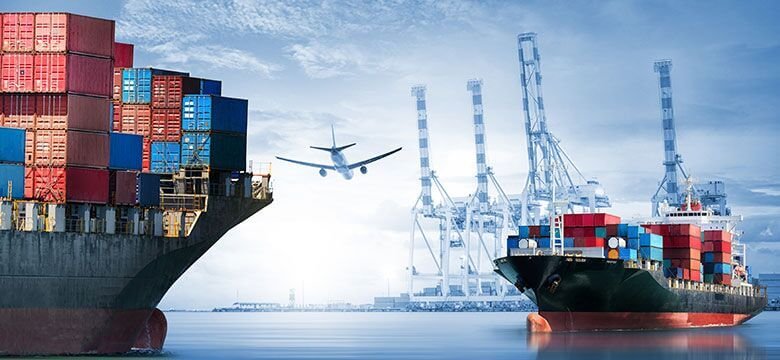Maritime law plays a pivotal role in shaping the operations and regulations of the maritime industry in Houston, one of the busiest maritime hubs in the United States. From ensuring safety and compliance to facilitating trade and resolving disputes, maritime law influences various aspects of Houston’s maritime sector. In this article, we’ll explore the significance of maritime law in Houston, its impact on the local economy, and the role of legal services in supporting the industry.
Introduction to Maritime Law
Definition and Scope Maritime law, also known as admiralty law, encompasses a broad range of legal principles and regulations governing activities on navigable waters, including shipping, trade, commerce, and marine environmental protection.
Significance of Maritime Law in Houston Houston’s strategic location along the Gulf Coast positions it as a major maritime center, with significant port facilities, shipping channels, and maritime-related industries. Maritime law plays a crucial role in regulating and supporting these activities, ensuring smooth operations and compliance with legal requirements.
Maritime Industry in Houston
Overview of Houston’s Maritime Sector Houston boasts one of the largest and busiest ports in the United States, handling a diverse range of cargo, including petroleum, chemicals, containers, and bulk commodities. The Port of Houston plays a vital role in facilitating international trade and commerce, serving as a gateway for imports and exports to and from the United States.
Key Players and Stakeholders The maritime industry in Houston comprises various stakeholders, including port authorities, shipping companies, cargo handlers, logistics providers, and maritime service providers. These entities collaborate to ensure efficient and reliable maritime operations, driving economic growth and prosperity in the region.
Role of Maritime Law in Houston
Ensuring Compliance and Safety Maritime law sets forth regulations and standards aimed at ensuring the safety of maritime operations and protecting the environment. In Houston, compliance with these legal requirements is essential to prevent accidents, pollution, and other maritime incidents.
Facilitating Trade and Commerce Maritime law provides the legal framework for maritime transactions, contracts, and agreements, facilitating the movement of goods and commodities through Houston’s port facilities. By establishing clear rights and obligations, maritime law promotes trade and commerce and fosters economic development in the region.
Resolving Disputes and Legal Issues Inevitably, disputes and legal issues may arise in the course of maritime operations. Maritime law provides mechanisms for resolving these conflicts through litigation, arbitration, mediation, and other alternative dispute resolution methods. These legal processes help maintain stability and fairness in Houston’s maritime industry.
Regulatory Framework in Houston
Local, State, and Federal Regulations Houston’s maritime industry is subject to a complex regulatory framework governed by local, state, and federal laws and regulations. These regulations address various aspects of maritime operations, including vessel safety, pollution prevention, port security, and labor standards.
Environmental Considerations As environmental concerns continue to gain prominence, Houston’s maritime sector must comply with stringent environmental regulations aimed at protecting air and water quality, preserving natural habitats, and minimizing the impact of maritime activities on the ecosystem. Maritime law plays a critical role in enforcing these environmental standards and promoting sustainable practices.
Impact on Houston’s Economy
Contribution to Economic Growth and Employment The maritime industry is a significant driver of Houston’s economy, generating billions of dollars in revenue and supporting thousands of jobs in maritime-related sectors, such as shipping, logistics, warehousing, and maritime services. The Port of Houston alone contributes billions of dollars to the region’s GDP and provides employment opportunities for local residents.
Supporting Industries and Businesses Beyond the direct impact on port operations, Houston’s maritime industry supports a wide range of ancillary industries and businesses, including manufacturing, construction, retail, and hospitality. These sectors benefit from the efficient movement of goods and commodities through Houston’s port facilities, creating a ripple effect of economic activity throughout the region.
Challenges and Opportunities
Addressing Regulatory Complexities Navigating the intricate web of maritime regulations can pose challenges for industry stakeholders, requiring legal expertise and compliance management strategies. However, by staying abreast of regulatory developments and leveraging legal resources, Houston’s maritime sector can turn regulatory challenges into opportunities for growth and innovation.
Embracing Technological Advancements Advancements in technology, such as automation, digitalization, and data analytics, are reshaping the maritime industry, offering opportunities to improve efficiency, safety, and sustainability. Houston’s maritime sector can harness these technological innovations to enhance operations, streamline processes, and remain competitive in the global market.
Legal Services and Expertise
Role of Maritime Law Firms and Legal Practitioners Maritime law firms and legal practitioners play a vital role in providing legal services and expertise to clients in Houston’s maritime industry. These professionals offer specialized knowledge and experience in maritime law, assisting clients with regulatory compliance, contract negotiations, dispute resolution, and other legal matters.
Specialized Services Offered Maritime law firms offer a wide range of specialized services tailored to the needs of clients in the maritime sector, including legal representation in admiralty and maritime litigation, transactional support for maritime contracts and agreements, regulatory compliance assistance, risk management, and insurance counseling.
Collaboration and Innovation
Partnerships Between Industry and Legal Experts Collaboration between industry stakeholders and legal experts is essential for addressing complex legal issues, promoting best practices, and driving innovation in Houston’s maritime industry. By working together, stakeholders can develop effective solutions to emerging challenges and capitalize on opportunities for growth and development.
Innovation in Legal Practices As the maritime industry evolves, legal practices and processes must adapt to meet the changing needs and demands of clients. Maritime law firms are embracing innovation by leveraging technology, adopting new legal strategies, and exploring alternative dispute resolution methods to deliver efficient and effective legal services in Houston’s dynamic maritime environment.
Conclusion
Maritime law plays a crucial role in regulating and supporting the maritime industry in Houston, one of the largest and busiest maritime hubs in the United States. From ensuring compliance and safety to facilitating trade and resolving disputes, maritime law influences various aspects of Houston’s maritime sector, driving economic growth, supporting employment, and promoting sustainable development. As Houston’s maritime industry continues to evolve, collaboration between industry stakeholders and legal experts will be essential for addressing challenges, embracing opportunities, and shaping the future of maritime operations in the region.


